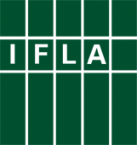
The International Federation of Library Associations and Institutions (IFLA) is the leading international body representing the interests of library and information services and their users. It is the global voice of the library and information profession.
Founded in Edinburgh, Scotland, in 1927 at an international conference, we celebrated our 75th birthday at our conference in Glasgow, Scotland in 2002. We now have over 1500 Members in approximately 150 countries around the world. IFLA was registered in the Netherlands in 1971. The Royal Library, the national library of the Netherlands, in The Hague, generously provides the facilities for our headquarters.
Aims
IFLA is an independent, international, non-governmental, not-for-profit organization. Our aims are to:
- Promote high standards of provision and delivery of library and information services
- Encourage widespread understanding of the value of good library & information services
- Represent the interests of our members throughout the world.
Core Values
In pursuing these aims IFLA embraces the following core values:
-the endorsement of the principles of freedom of access to information. ideas and works of imagination and freedom of expression embodied in Article 19 of the Universal Declaration of Human Rights;
- the belief that people, communities and organizations need universal and equitable access to information, ideas and works of imagination for their social, educational, cultural, democratic and economic well-being;
- the conviction that delivery of high quality library and information services helps guarantee that access;
- the commitment to enable all Members of the Federation to engage in, and benefit from, its activities without regard to citizenship, disability, ethnic origin, gender, geographical location, language, political philosophy, race or religion.
Preserving and safeguarding cultural heritage has always been a core aim of IFLA. IFLA’s Preservation and Conservation Section and the Preservation and Conservation Strategic Programme (PAC) provide international forums for the exchange, development, and dissemination of knowledge and experience in the field of preservation and conservation. They deal with theories, policies, and practices for the preservation of all heritage.
Information on IFLA's work on preservation and conservation of cultural heritage can be found on the organisation's Website.
-
La Fédération Internationale des Associations et Institutions de Bibliothèques (IFLA) est la principale organisation représentant les intérêts des bibliothèques et des services d'information et de leurs usagers. Au niveau mondial elle est le porte-parole de la profession des bibliothèques et de l'information.
Fondée à Edimbourg, en Ecosse, lors d'une conférence internationale, l’IFLA fête son 90ème anniversaire en 2017 et compte désormais 1400 adhérents dans environ 140 pays du monde entier. L'IFLA a été immatriculée aux Pays-Bas en 1971. La Bibliothèque Royale, Bibliothèque nationale des Pays-Bas, à La Haye, met généreusement ses locaux à la disposition du siège social.
Objectifs
L’IFLA est une organisation internationale non gouvernementale indépendante à but non lucratif. Ses objectifs sont les suivants :
- promouvoir des normes exigeantes pour la prestation de services de bibliothèque et d’information ;
- encourager la compréhension généralisée de la valeur de services de bibliothèque et d’information de qualité ;
- représenter les intérêts des membres de l’organisation à l’international.
Valeurs fondamentales
En poursuivant ces objectifs, l’IFLA adhère aux valeurs fondamentales suivantes :
- la reconnaissance des principes de liberté d’accès à l’information, aux idées et aux œuvres d’imagination, et de liberté d’expression incarnée par l’article 19 de la Déclaration universelle des droits de l’homme ;
- la conviction que les personnes, les communautés et les organisations ont besoin d’un accès équitable et universel à l’information, aux idées et aux œuvres d’imagination pour leur bien-être social, éducatif, culturel, démocratique et économique ;
- la conviction que fournir des services de bibliothèque et d’information de qualité contribue à garantir cet accès ;
- l’engagement de permettre à tous les membres de la Fédération de participer et de bénéficier de ses activités sans égard à la citoyenneté, le handicap, l’origine ethnique, le sexe, la situation géographique, la langue, la philosophie politique, la race ou la religion.
La préservation et la sauvegarde du patrimoine culturel a toujours été un objectif fondamental de l’IFLA. La Section de préservation et de conservation (Preservation and Conservation Section), ainsi que le Programme stratégique de préservation et de conservation (Conservation Strategic Programme-PAC), offrent des plateformes internationales pour l’échange, le développement et la diffusion des connaissances et des expériences dans le domaine de la préservation et de la conservation. Ils traitent des théories, des politiques et des pratiques pour la préservation du patrimoine dans son entier.
Des informations sur le travail de l’IFLA en matière de préservation et de conservation du patrimoine culturel peuvent être consultées sur le site internet de l’organisation.


